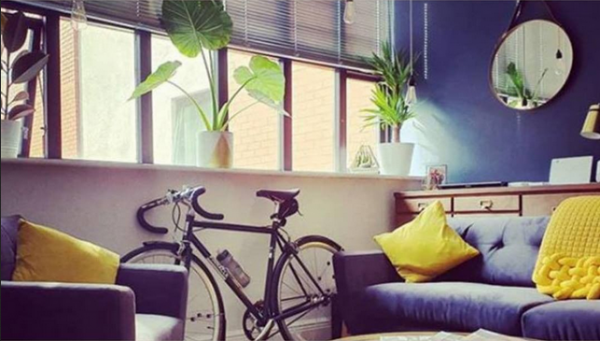How to Get a Bigger Mortgage
1.png)
Unfortunately, bagging your dream home can be curtailed by a number of things. Being unable to get a big enough mortgage can be an issue that arises.
Keep reading if you want to learn some nifty tips and tricks to help you secure a bigger mortgage and get your hands on your dream house!
First things first – pay off your debts
When a lender is deciding how much to give you as a mortgage, they will take a look at the money that you already owe. The chances are, if you are in debt you will not be able to borrow as much from a lender.
If you have some savings, think about using them to pay off any debt that you have. This will definitely help in making you look more attractive to lenders and they are more likely to be willing to lend you the amount you need. Obviously, you need to ensure that you keep some of your savings aside for emergencies.
If you are in debt, a lender will take a look at your DTI (debt to income) ratio. If you have a DTI of around 35% then in general, a lender will be happy to give you a larger loan.
Close any old accounts
Lenders tend to look at how much access to credit you already have. Therefore, if you have a wealth of credit cards or a large overdraft, oftentimes they will be less likely to want to lend to you.
It makes sense to close any credit facilities that you have and don't need. Or, at least ask for the overdraft limit to be reduced.
Improve your overall credit rating
Some great ways of improving your credit rating are to be on the voting register and ensuring you pay all your bills on time.
Check out our blog on how to build your credit score to buy a home for more.
Get your accounts organised
Especially if you're self-employed, it is so important to sort out your accounts. Lenders will want to see evidence of your accounts in order to understand your income for the past two years. The more you earn, the more tax you pay, but also, the more you can borrow!

Look at different mortgage lenders
It's vital that you don't just go with the first lender to offer you a mortgage. Different lenders will have different ideas about how much they can lend, so you may be missing out on a more suitable deal if you rush any decisions.
You can get free mortgage advice here at Emoov.
Cut your spending
Lenders are pretty nosey, so they will definitely take a look at how you spend your money. They'll look into childcare costs, bills and financial lifestyle choices, for example, holidays. Therefore, if you're looking to borrow more, one of the best things you can do is to reduce your other spending where you can. It's also a good idea to make a budget plan and try, where possible, to stick to it.
Extend your loan over a longer time period
In general, a mortgage term is around 25 years. You could look into lowering your monthly payments by choosing a longer term. Lenders tend to consider up to 35 years. As this makes your payments more affordable, it helps you to borrow more. It's important to note that the longer your mortgage term, the more you will pay in overall interest.

Get other people involved
You could consider getting a . This can be a parent or another person you are close to that will guarantee your mortgage. This gives a lender reassurance and will boost your borrowing prowess. You could also opt for a with a partner, friend or relative.
Become a doctor or dentist!
While this is somewhat in jest, there are some mortgages that are tailored towards doctors and dentists, so if you are one, look into that! In general though, getting a pay rise can massively help in your quest to borrow more. Obviously, this isn't always easy or possible, but it is something to look into if your situation allows it.
Now you know how to secure a larger mortgage, it's time to start hunting for that perfect home. Check out our selection and get browsing!

When Property Offers Fall Through: A Guide for Sellers and Buyers
25.06.2025One of the biggest worries for anyone buying or selling a home is the possibility of the deal falling through. And it's a valid concern - nearly 29% of property sales in the UK didn't make it to completion in 2024. Whether due to cold feet, poor survey results, or mortgage issues, it's more common than most people think.

The Best Building Survey if You're Buying an Older Property
05.06.2025Buying a property is a big decision by anyone's standards, which is why it's important to view one with a practical hat on rather than being ruled by your heart.

Hidden Costs Revealed: What Your Survey Might Uncover
21.07.2024Buying a home is a major financial commitment and for most of us, it's the biggest purchase we'll ever make. Whether this is your first time stepping on the property ladder, you're an existing homeowner or you're investing in a property for commercial purposes, checking things out thoroughly is always essential. One of the most effective tools to assist with this is a property survey but, what might a survey uncover and how will that affect your property purchase?

How to save money when buying a home
05.05.2024So, you're thinking of buying a new home? That's great news! Is it a trendy three-bed terrace in a cul-de-sac? Or do you fancy a penthouse apartment with city views? Whatever the property type, we're sure you're excited about your soon-to-be new home.
.png)
How Long is a Property Chain?
22.04.2024In case you don't know by now, a property chain is when multiple transactions are linked together and need to be completed at the same time for each sale to be successful. However, many buyers and sellers often wonder about the length of a property chain.
.png)
The Pros of Buying a House Chain Free
22.04.2024Have you ever noticed the words "chain free" when searching for a new home? If you have, it means you were looking at a property that didn't require an onward purchase to complete, which reduces the chances of the chain breaking down.









